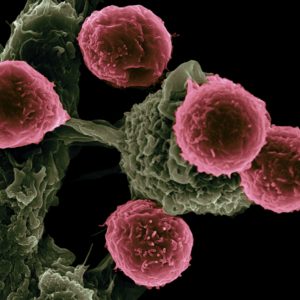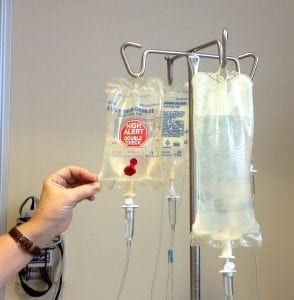Urothelial Carcinoma
What is urothelial carcinoma?
Urothelial carcinoma, more commonly referred to as bladder cancer, occurs when the urothelial cells on the inner lining of the bladder mutate and begin to multiply out of control, eventually forming a tumor. These cells are also found in the urethra, renal pelvis, and ureters, meaning that this cancer can form there as well.
What are the symptoms of urothelial carcinoma?
Common signs and symptoms of this cancer include:
- Blood in the urine
- Pain during urination
- Changes in bladder habits (urinating more/less frequently)
- Loss of appetite
- Unintentional weight loss
- Bone pain
- Swollen feet
- Fatigue and weakness
- Inability to urinate
- Pain on one side in the lower back
What causes urothelial carcinoma?
Medical professionals are unsure as to what exactly causes this cancer. They know that the urothelial cells are mutated and multiply out of control, but they do not know why this happens. However, they have identified a number of risk factors, such as smoking, exposure to certain chemicals and substances, certain medications, arsenic in drinking water, being older than 55, being Caucasian, having a personal history of bladder cancer, being male, chronic bladder infections, and genetics.
How is urothelial carcinoma diagnosed?
This cancer is often diagnosed after patients notice blood in their urine and bring the concern to their doctors. In order to diagnose urothelial carcinoma, doctors will look through a patient’s medical history and perform a physical examination before conducting lab tests. These tests include urinalysis, urine cytology, urine tumor marker tests, urine culture, cystoscopy, transurethral resection of bladder tumor, and imaging tests.
What are the treatments for urothelial carcinoma?
Doctors will decide the best treatment based on the stage of the cancer, the patient’s overall health, and patient preference. Possible treatment options include:
- Immunotherapy
- Targeted therapy
- Surgery
- Radiation therapy
- Chemotherapy
- Intravesical therapy
Where can I find out more about urothelial carcinoma?
Urothelial Carcinoma Articles


FDA Approves Balversa (Erdafitinib) for Locally Advanced or Metastatic Urothelial Carcinoma

STUDY: Opdivo with Chemotherapy Improves Urothelial Carcinoma Survival Rates


Phase 3 Data Highlights the Benefits of Nivolumab for Urothelial Carcinoma


Nivolumab Receives Additional Indication for Urothelial Carcinoma







